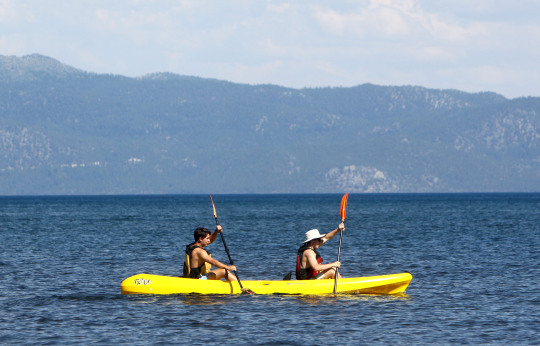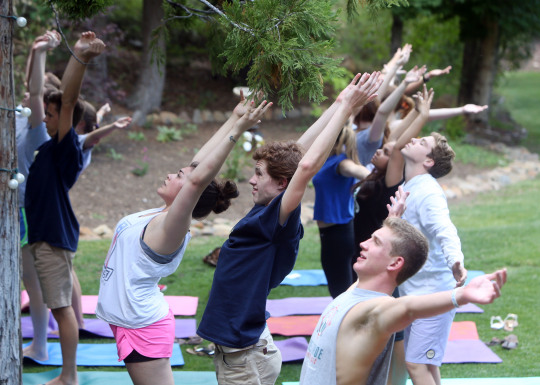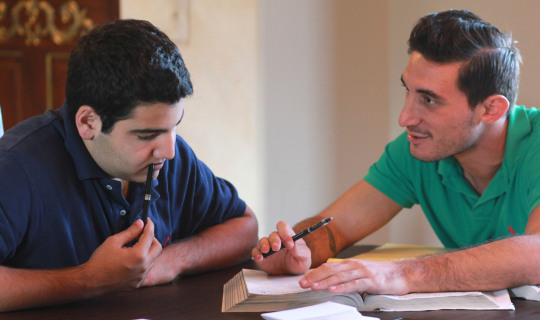
By Lucas McAdams, ESM Senior College Coach
When I try to broach the topic of “spending a summer productively” with students, I’m usually met with immediate resistance. One moment I’m a kid’s best friend, his go-to mentor that he would always listen to, and the next moment it’s like I’m Bilbo Baggins, untrustworthy thief, and he’s Gollum, hoarding away his only precious possession.
The message from students is clear: my summer is MY SUMMER. I work hard all school year. I just need three months off to relax, okay? Is that so much to ask?!
Aside from the obvious response (you know, the one that starts with, “Alright buddy, time for a reality check…”), I think that the overall issue here is one of communication. Parents, students, and mentors are all on the same team; we just don’t quite realize it yet. I’ve found that when parents and mentors approach the summer from the right perspective, students are much more willing to do things that we can classify as truly productive to both personal growth and college admissions. It’s a matter of providing the right framework for a student to work from, and then following through with them to ensure that they’re not getting too distracted by other (less productive) pursuits.
Overall, the most important thing to remember is that summer activities should be student-led. As parents and mentors, our job is to provide ideas and support to the student, not tyrannical demands. As soon as the student doesn’t feel like she’s in charge of her summer pursuits, we’re going to run into issues.
Here are five productive ways that students can spend their summer, along with some tips for how best to approach each respective conversation:
1. Developing Passions
First and foremost, we should be encouraging students to pursue the things they love. This is obvious just from a personal perspective, but also from a college admissions perspective. Admissions officers like nothing more than to see a student with a demonstrated passion in a certain area. Whether that’s baseball or photography, biology or fashion design, the summer provides a unique opportunity for students to dedicate large amounts of time to improving at the hobbies they love.
Conversations here are usually not difficult. If a student loves photography, he’s probably going to agree that he should spend a lot of time shooting pictures. The way mentors and parents can really help is by encouraging the student to pursue their passion within some sort of structure. In the case of photography, maybe that means developing a calendar for when and where a student is going to shoot each week. Or it could be signing up a student for a class or camp that they normally wouldn’t have had the motivation to attend. The important thing is that we’re encouraging them and providing recommendations - not forcing them or providing demands.

2. Expanding Horizons
This one is especially important for students who haven’t been able to identify any true passions yet (read: most of them). Given the extra free time, summer provides a unique chance for students to get outside of their comfort zone. I like to challenge students to report back to me weekly with something they did that was entirely new or something that made them uncomfortable. This can take many different forms. It can be a attending new volunteer experience, hanging out with new friends, or traveling to a new place. It can also be doing something new in a familiar place - for instance, encouraging a student keep a travel journal on their family vacation instead of just following along passively.
The idea here is that students who haven’t yet discovered their passions need to be actively attempting to do so. We learn infinitely more about ourselves when we’re outside of our comfort zone, trying something new, then when we’re stuck in our familiar daily routine. And when it comes time to write that college essay, if a student can’t point to a specific passion, at least she can reference everything she’s done already to try to find it.
3. Getting a Boost in School
This one is fairly straightforward, but often requires a considerable amount of foresight, because taking summer classes can be very productive, but it can also be the opposite. Students should have a clear plan in place for when and why they will take a summer class. For instance, “I’m taking Algebra 2 during the summer between sophomore and junior year so that I can take Pre-Calculus during junior year and Calculus during senior year.” Or, “the Astronomy class at the Community College sounds really fun, so I’m going to take that this summer.” Obviously, as parents and mentors, it’s our job to help students plan this out.
It’s also our job to approach this topic in a way that seems less awful than students might normally consider it. I think it’s key to plant the seed of summer school early, and hopefully allow the student to take some ownership of it. For instance, mentioning to a student that a university they aspire to generally wants students to have finished calculus, and giving them time to figure out how they can make that happen. Of all the categories, this is likely to be the one that students push back on the most, but all students will be more willing to attend summer school if they see the value in it.

4. Making Money
Many families are a bit surprised to hear me say this, but having a job is one of the best ways for students to spend their summer, both in terms of personal growth and in terms of college admissions. I think the misconception comes from a perceived bias towards volunteer experiences on the part of college admissions officers, but there is little evidence to suggest that is the case. A summer job can teach students an incredible amount about what it’s like in “the real world”, not to mention impart dozens of useful character traits that can be referenced on college essays: teamwork, leadership, persistence, and initiative, to name just a few.
The growth that takes place in a first job can also help students immensely when they’re making the transition to college and looking for a work-study or part-time job. Just consider how much most of us learned in our first jobs. For me, that first job was at Subway; all I’ll say here is that it didn’t end gracefully. But I learned a lot in those five weeks, and I’ve always considered myself better for having had the experience.
5. Having Fun
The last, but by no means least, category is having fun. It’s extremely important that students have time to relax during the summer. This means activities they enjoy, but it also means free time to use up however they wish. Even a schedule of a student’s favorite pursuits will become exhausting if there isn’t any time to relax mixed in. So yes, that means time to sleep in, time to play videogames, and time to just do nothing. The operative word is balance; as parents and mentors, we need to help students find the balance between their down time and their up time. This balance will be different for every student (including siblings).
You may have noticed that it’s possible for many of these categories to overlap; that is by design. A summer job, for instance, should be fun and should expand a student’s horizons. And obviously pursuing a passion should be fun, too. In fact, students should find enjoyment (or other value) out of everything they take on in the summer. We need to tailor our encouragement around that belief: that a student will benefit most from a summer of self-led activities that he or she enjoys.
In the end, we’re all hoping to get to the point where we love what we do and it doesn’t feel like work, and high school summers are an important step in getting there. Only then can the idea of a three (or even 12) month break become truly attainable.